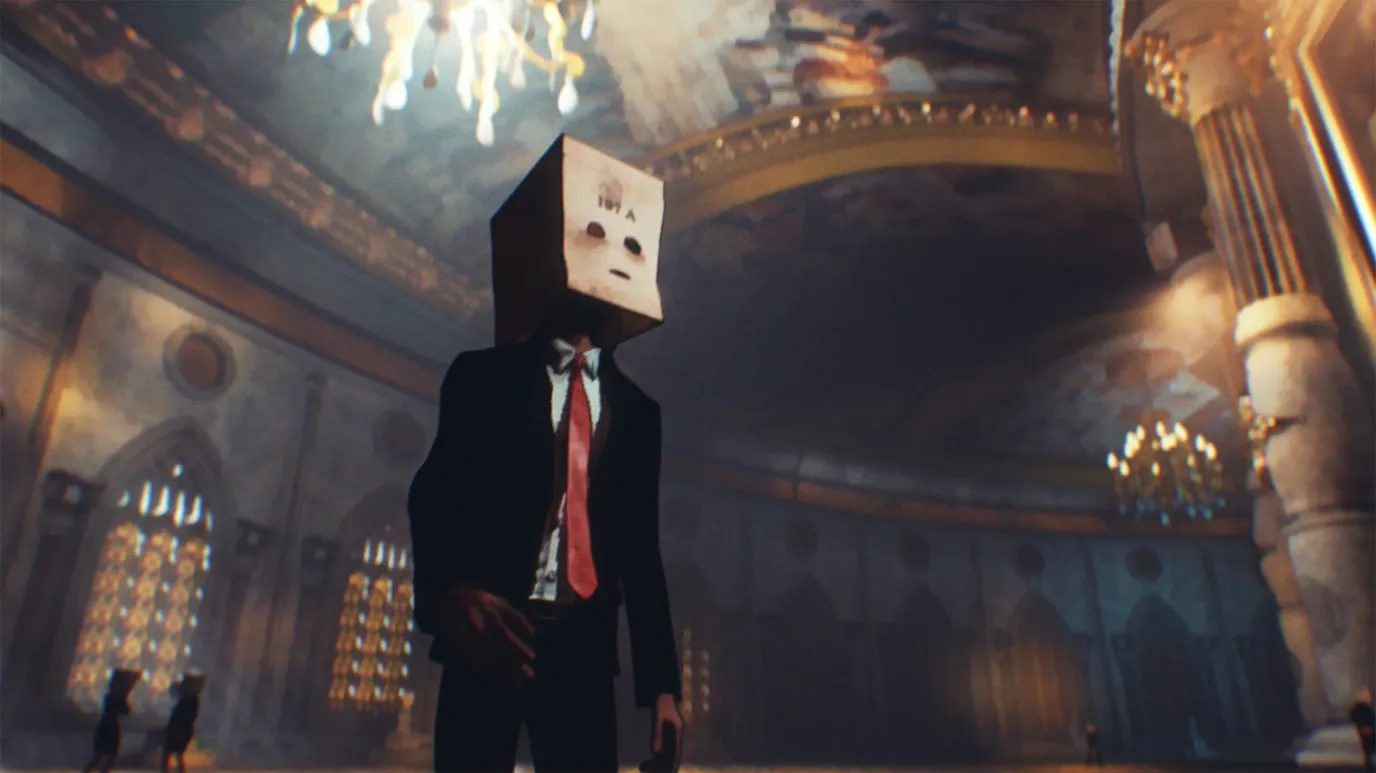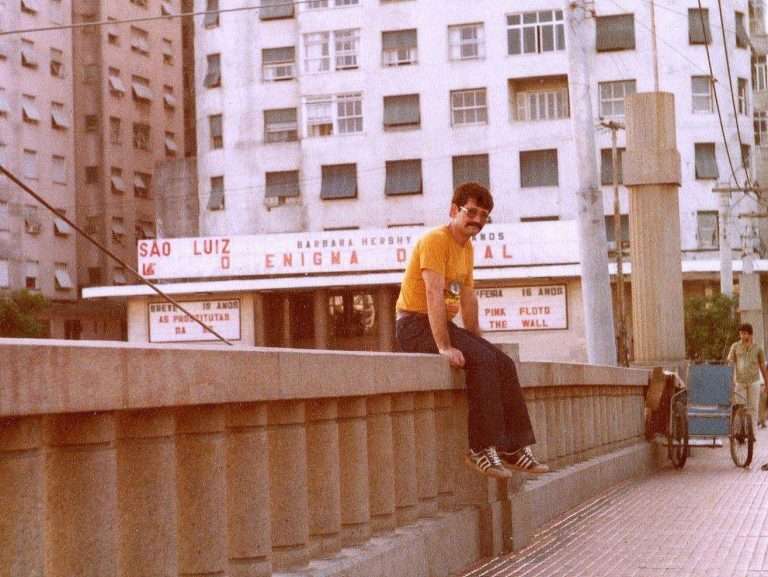I hereby present to you a thoroughly made animation. It’s thought-provoking to the extent you are willing to make an effort and so visually absorbing if you just sit back. Certainly, everything can be examined, condemned, or praised under the most strict and demanding eyes, but, hey, Schirkoa: In Lies We Trust (2024) can raise eyebrows and debates—isn’t that the point? Exciting.
Schirkoa is a state the size of a city governed by extreme authoritarian politics. Citizens are reduced in name by numbers and in facial features by uniforms; no one is ever allowed to remove the paper bag covering their head and stating their number. We do not know the faces of the characters, as they also do not know for themselves. Besides that, this place has enough variety in habits, hobbies, anxieties, and fears.
As required by any proper dystopian story, there is an imminent threat coming from external visitors (aka refugees). Whispers injected by the controlling authorities spread despair over alleged anomalies that threaten the metropolis’s security. Whispers circulating in the city’s darkest, ‘decongesting’ sides promise a land of freedom across the borders. A revolution or a war is lurking just around the corner, and it won’t take long till it bursts into many colorful pieces.
We follow 197A, a young, promising bureaucrat in a suit, working his way up in the system with concerns fed by his social interactions. He is airily conflicted by his work performance and his personal thoughts (sounds familiar?). Soon enough, this division will be acute by the requirements of the governmental committee and his encounter with an intruder: a girl on the hunt who shares the same uneasiness and despair. Together (and unwillingly), they will stir things up to what comes to be a complete, self-sustained story of the search for meaning. In this case, it comes in two distinct parts: the world of totalitarian control and the great, liberal beyond.
Heads up, this is not an opportunity to find your big answers in life or a God to believe in. This is not even a moment for casual reflection. It might be an entertaining overview of our established political settings and internal spiritual conflicts (especially from the ‘enlightened’ West, bless us), but it doesn’t go further than that. The worth here lies in the journey. Before you turn your head in disgust, I mean this literally because the visual outcome is close to magnificent. The detailed depictions and vibrant neo-noir settings reminiscent of “Blade Runner” (to be fair, the sequel) support this ambitious project well enough to leave no room for suspicions over the suggested awakening.

The combined techniques of 2D and 3D sketching and movements (with references to anime traditions) enrich the viewing effect and provide a pacing guide to this complex, mega-thematic attempt. Injections of humor do the trick as well; the extensive scene of contemplating suicide methods is absolutely a conceptual bracing and breaking free from thoughts of romanticization and oversimplification of any roaming added theme. Ultimately, everything is as overwhelming as smoothen down.
The story is soaked in ideals of social freedom and questions of existentialism, and in this sense, it might be perceived as overloaded. But, this story was developed over the course of 10 years (one could argue if there’s ever enough time to put together a new, waterproof world). Furthermore, it has its origins in the titular graphic novel and short animation film, all conceptions and creations of the director Ishan Shukla. For a creative coming from India, a fair amount of ‘spirituality’ is expected, but the Western lenses are surprising. Yet, this micro-universe is a cultural and ethnic fusion, implying that Schirkoa stands somewhere in between and above what we know to be the world, which is an intelligent way to handle the conceptual load.
Equally, a handful of accents and cultural influences dress the characters in a condensed and convincing way. The glue seems to be sexuality that is veiling this place, openly and darkened—not at all oppressed as one would expect. It is hard not to notice the pornographic features, loud as they are, even in the wildest settings that we visit in the film’s second half. The depictions do include transgender elements but fail to offer a fresh, broader representation of the sexuality of the human body; breasts are shaped and structured as if baseballs, waists are ringed, and hips are moving half a second slower. I do wonder if we are confronted here with the impossible request for universal sex symbols or desires.
Next to this note, the film features voice contributions from Asia Argento, Gaspar Noe, and Lav Diaz that add to its general cool vibes. It’s an apparent moment for celebration for a debuting feature film director of his range. Yet, not less significant than the creative use of technical tools, the motion was entirely captured in the Unreal Engine, originally addressed to video game developers, allowing real-time 3D content creation ‘beyond their wildest imagination.’ I guess Ishan Shukla took it as a filmmaking challenge. Well worth it!
‘Schirkoa: In Lies We Trust’ premiered at the International Film Festival Rotterdam 2024 in the Bright Future section. It is a co-production between France’s Dissidenz Films, India’s Red Cigarette Media, Germany’s Rapid Eye Movies, and Mumbai- and London-based Civic Studios. New Europe Film Sales handles the international rights.


![The Nightingale [2019] Review: As Misguided As It Is Polarizing](https://79468c92.delivery.rocketcdn.me/wp-content/uploads/2019/11/the-nightingale-jennifer-kent-768x403.jpg)


![Muddy River [1981] Review – A Haunting Portrait of Childhood and Friendship in Post-War Japan](https://79468c92.delivery.rocketcdn.me/wp-content/uploads/2020/08/Muddy-River-1981-768x432.jpg)
